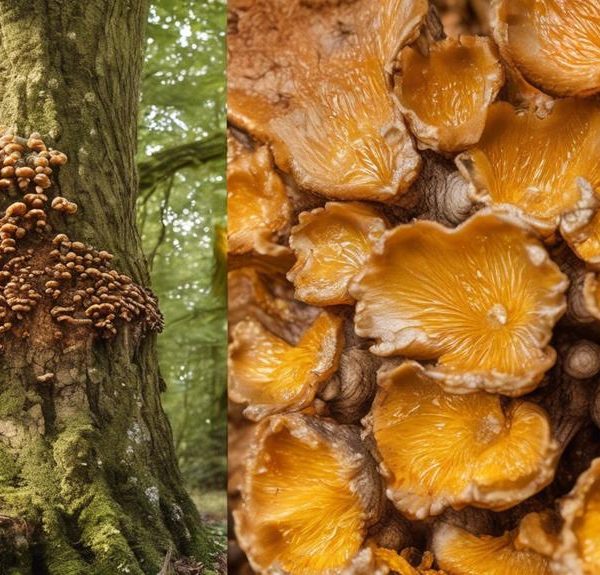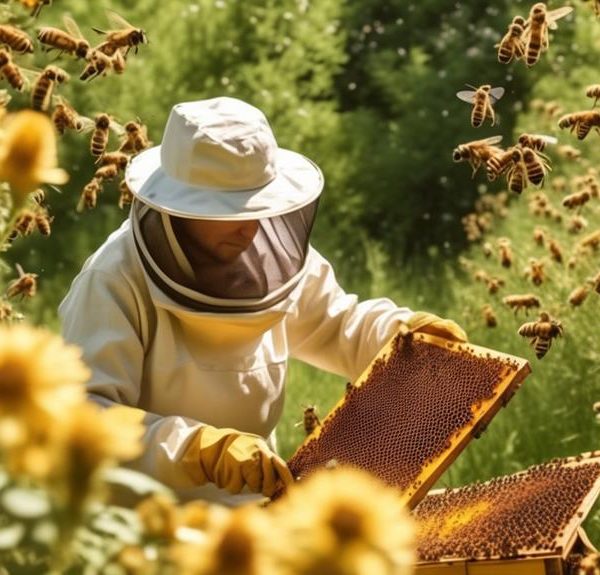Navigate the complex world of honey production and discover if our sweet indulgence inadvertently harms the tireless bees.
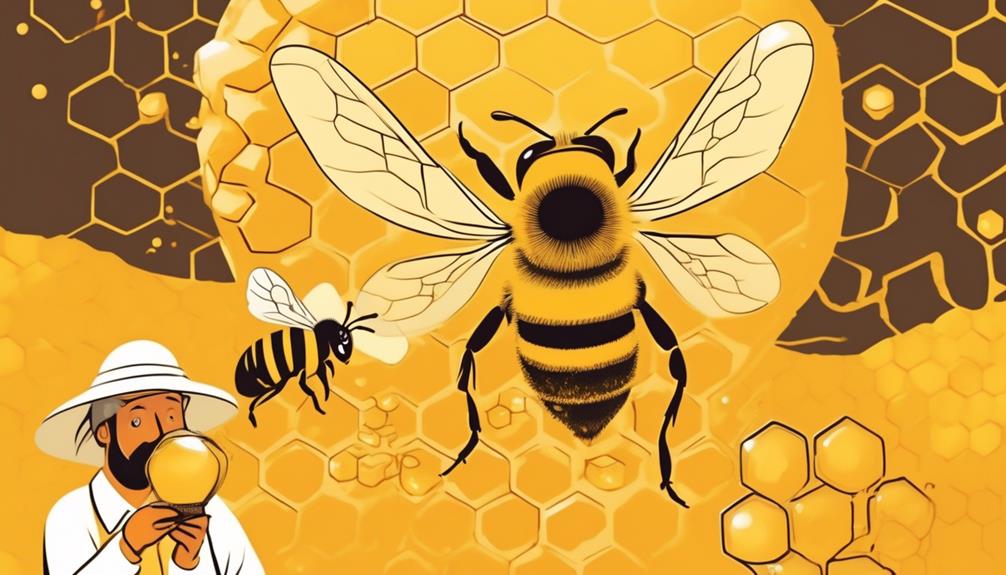
Are Bees Harmed in Honey Production
Imagine for a moment, you're a beekeeper in the Middle Ages, clad in old-fashioned garb, and elbow-deep in a buzzing hive as you carefully harvest honey.
But let's fast-forward to today. You might wonder, has the process of honey production changed? And more importantly, does this age-old practice harm the bees that work tirelessly to produce this sweet commodity?
These questions might seem simple, but the answers are more complex than you might expect. With concerns over bee populations, it's worth examining this topic closely to understand if our consumption habits are inadvertently causing harm.
But we're just scratching the surface here…
Key Takeaways
- Harvesting honey can stress bees and disrupt their routine, impacting their well-being.
- Responsible beekeeping practices, such as balanced harvesting and organic beekeeping, can support bee health and hive sustainability.
- Commercial honey production may prioritize profit over bee welfare, leading to potential harm and exploitation.
- Supporting ethical honey production methods and bee-friendly practices can contribute to the well-being of bee populations and their habitats.
Understanding Bee Behavior
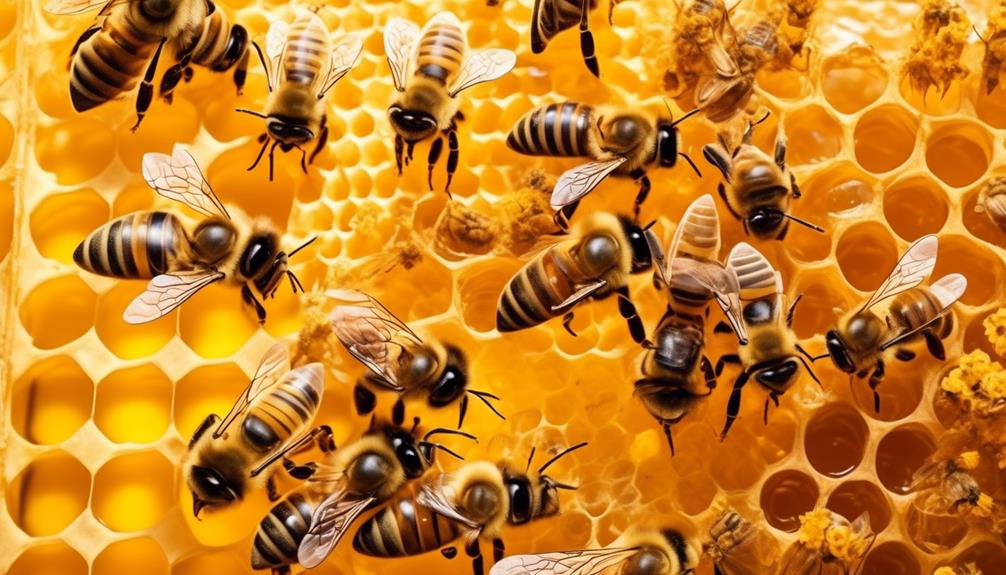
To fully grasp the impact of honey production on bees, it's crucial to understand their behavior and the vital role they play in the ecosystem. Bees are social insects, living in colonies often consisting of tens of thousands of individuals. Each bee has a specific role, ranging from foraging for nectar, guarding the hive, to tending to the young. They communicate using pheromones and perform 'waggle dances' to inform other bees about the location of food sources.
Moreover, bees play a pivotal role in pollination, a process vital to the survival of many plants. In fact, a third of the world's food production depends on bees. When bees collect nectar, they inadvertently transfer pollen from the male parts of a flower to the female parts, thus fertilizing the plant and enabling it to produce fruit and seeds.
Understanding these factors is key when evaluating the effects of honey production. Overharvesting honey, for instance, can cause a shortage of food in the hive, forcing bees to work harder and potentially leading to increased mortality. In the long run, this could threaten not only the survival of the bee colonies but also the ecosystems that rely on them for pollination.
The Process of Honey Production
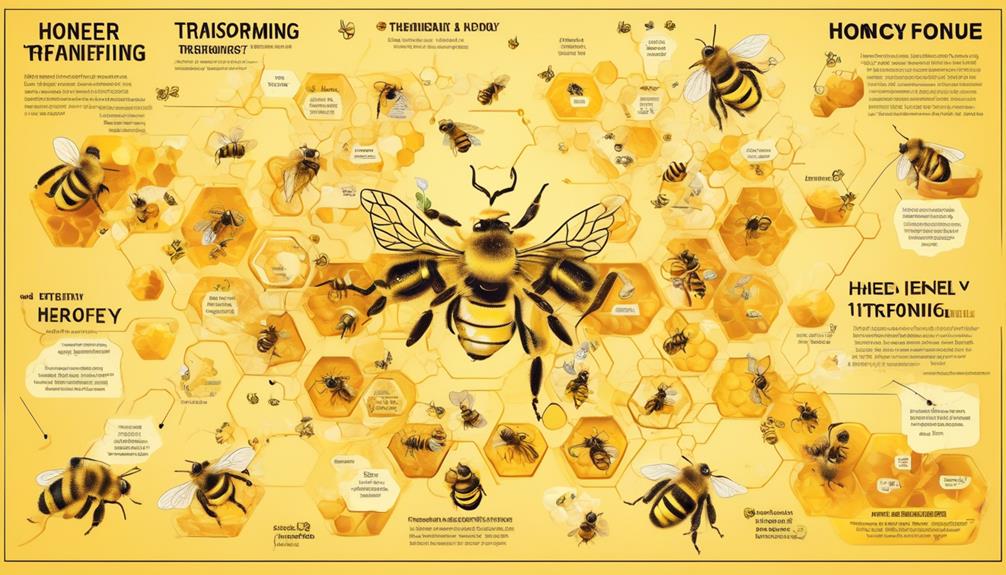
Ever wondered how bees transform nectar into the sweet, golden substance we know as honey? The process is quite remarkable, and it's largely thanks to the industrious nature of bees.
First, forager bees fly out to collect nectar from flowers. They store this nectar in a special stomach called a honey stomach. Back at the hive, these bees pass the nectar to younger house bees. These bees begin to break down the complex sugars in the nectar into simpler ones—a process known as inversion.
Next, they regurgitate the nectar into the honeycomb's cells. Now, here's where it gets interesting: the bees fan their wings to evaporate the water from the nectar. This transforms it into a thick, sticky substance—you've guessed it, honey.
Once the honey's moisture content drops below 18%, the bees seal the honeycomb with a layer of beeswax. This is known as capping. The honey is now stored and will serve as the bee colony's food source during winter. So, you see, honey production isn't just about making something tasty for us—it's a vital part of a bee's survival strategy.
Impact of Honey Harvesting on Bees
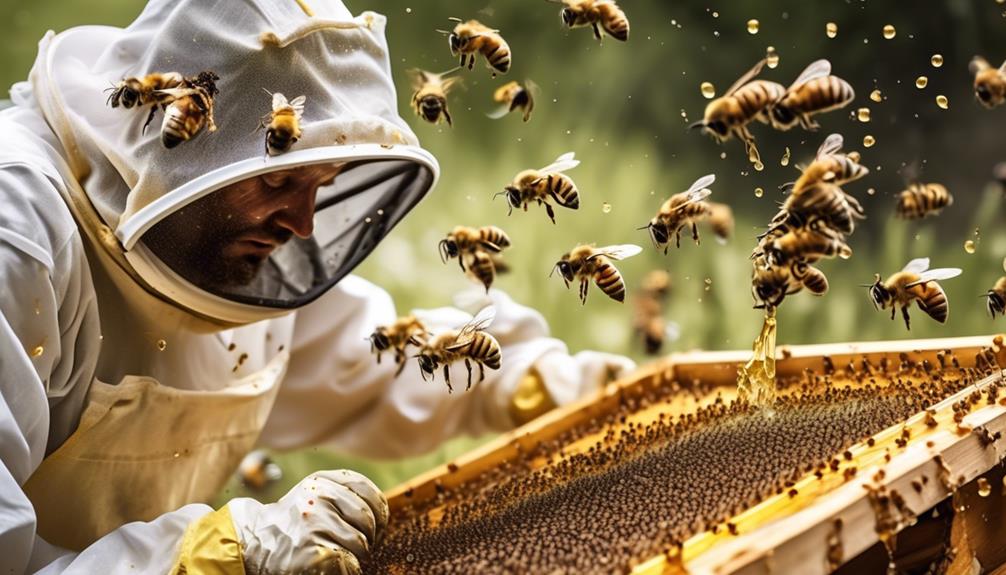
While enjoying the sweet taste of honey, you might wonder about the impact of honey harvesting on the bee population. Honey harvesting can disturb bees' routine and stress them, potentially harming their health. Harvesting honey means taking the bees' food supply, after all.
Beekeepers usually replace the honey they take with a sugar substitute, which isn't as nutritious. This can weaken the bees and make them more susceptible to diseases. Moreover, the process of honey extraction can also physically harm bees. If not done carefully, bees can get crushed or lose their wings.
However, not all honey harvesting is detrimental. Responsible beekeepers ensure they leave enough honey for bees to survive winter, and they extract honey in a way that minimizes harm to bees. They also monitor their hives for signs of disease and treat them promptly.
In contrast, commercial honey production often prioritizes profit over bee welfare, leading to harmful practices. For example, some beekeepers clip the wings of queen bees to prevent swarming, a natural process vital for reproduction.
Alternative Methods for Ethical Honey Production
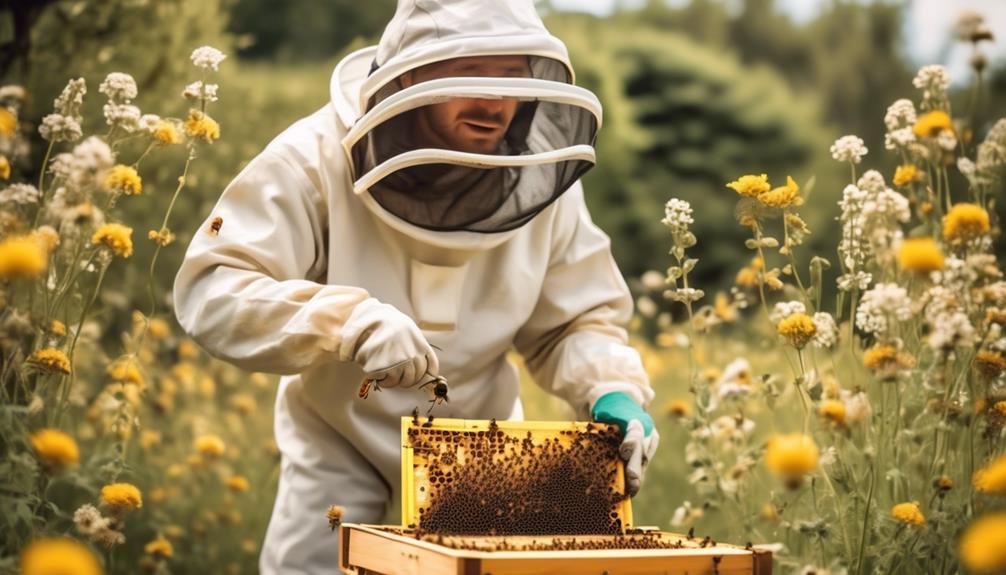
In light of these concerns, you might be wondering if there are alternative methods for ethical honey production that prioritize the welfare of bees. Indeed, there are. These methods focus on sustainable practices that ensure bees aren't overworked, or their hives depleted.
Let's consider three popular methods. Below is a table summarizing each:
Method | Description | Benefits |
|---|---|---|
Balanced Harvesting | Only a portion of the honey is collected, leaving enough for the bees. | Reduces strain on bees; ensures hive health. |
Organic Beekeeping | Avoids use of synthetic chemicals and antibiotics. | Protects bees from harmful substances; produces organic honey. |
Natural Hive Construction | Bees are allowed to build their own hives without artificial combs. | Reduces stress on bees; promotes natural behaviors. |
Balanced harvesting is about not being greedy. You ensure bees have enough honey for their own needs. Organic beekeeping keeps bees healthier by avoiding harmful chemicals. Natural hive construction lets bees do what comes naturally to them, reducing stress and promoting healthier colonies. All methods aim for a win-win scenario: you get your honey, the bees stay happy and healthy.
Ways to Support Bee-friendly Practices
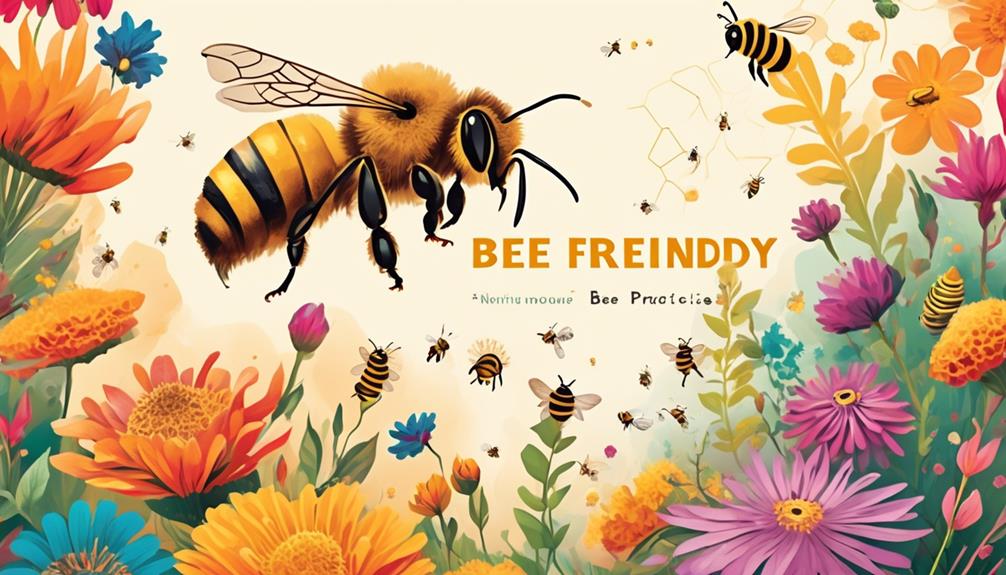
Having learned about alternative methods for ethical honey production, you might now be curious about how you can personally contribute to these bee-friendly practices. There are several ways in which you can help.
Firstly, consider buying honey from local beekeepers. These small-scale operations often prioritize the health and well-being of their bees over mass production. You're not only supporting ethical practices, but you're also helping local economies.
Secondly, think about planting a bee-friendly garden. Native plants, wildflowers, and herbs are particularly appealing to bees. By providing a nutrient-rich habitat, you're helping to boost local bee populations.
Another way to support bees is to avoid using harmful pesticides in your garden. Many common pesticides are toxic to bees and can contribute to their decline. Opt for organic, bee-friendly options instead.
Lastly, consider donating to bee conservation organizations. Your contributions can help fund research, habitat restoration, and educational programs.
Conclusion
You've explored bee behavior, honey production, and its impact on these buzzing pollinators. It's clear, traditional harvesting methods can harm bees. Thankfully, alternative, ethical methods are emerging.
You can support bee-friendly practices by buying from ethical beekeepers or adopting a hive. Remember, your choices influence the future of bees and the planet. So, let's act in ways that ensure our buzzing friends continue to play their vital role in the world's ecosystems.

